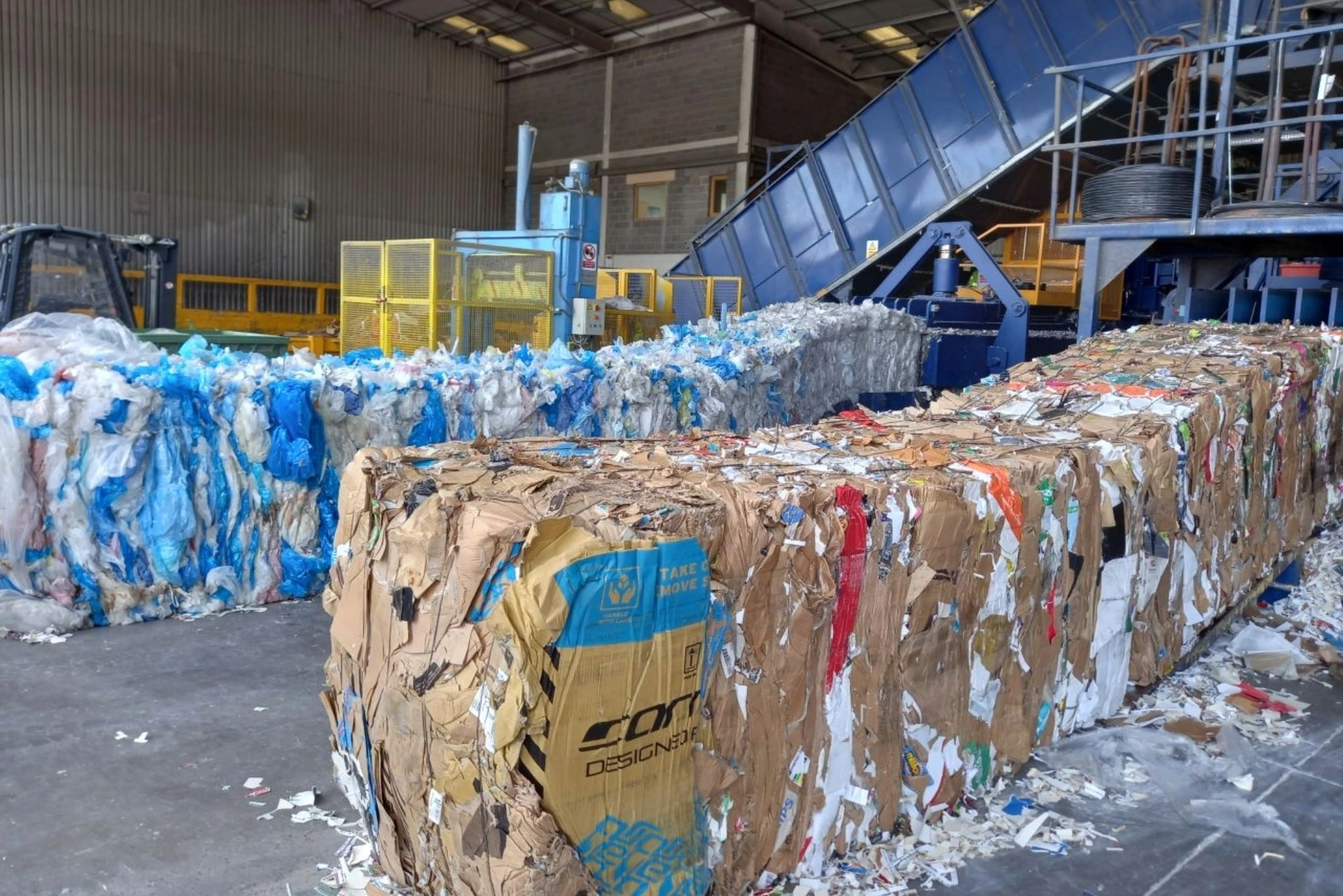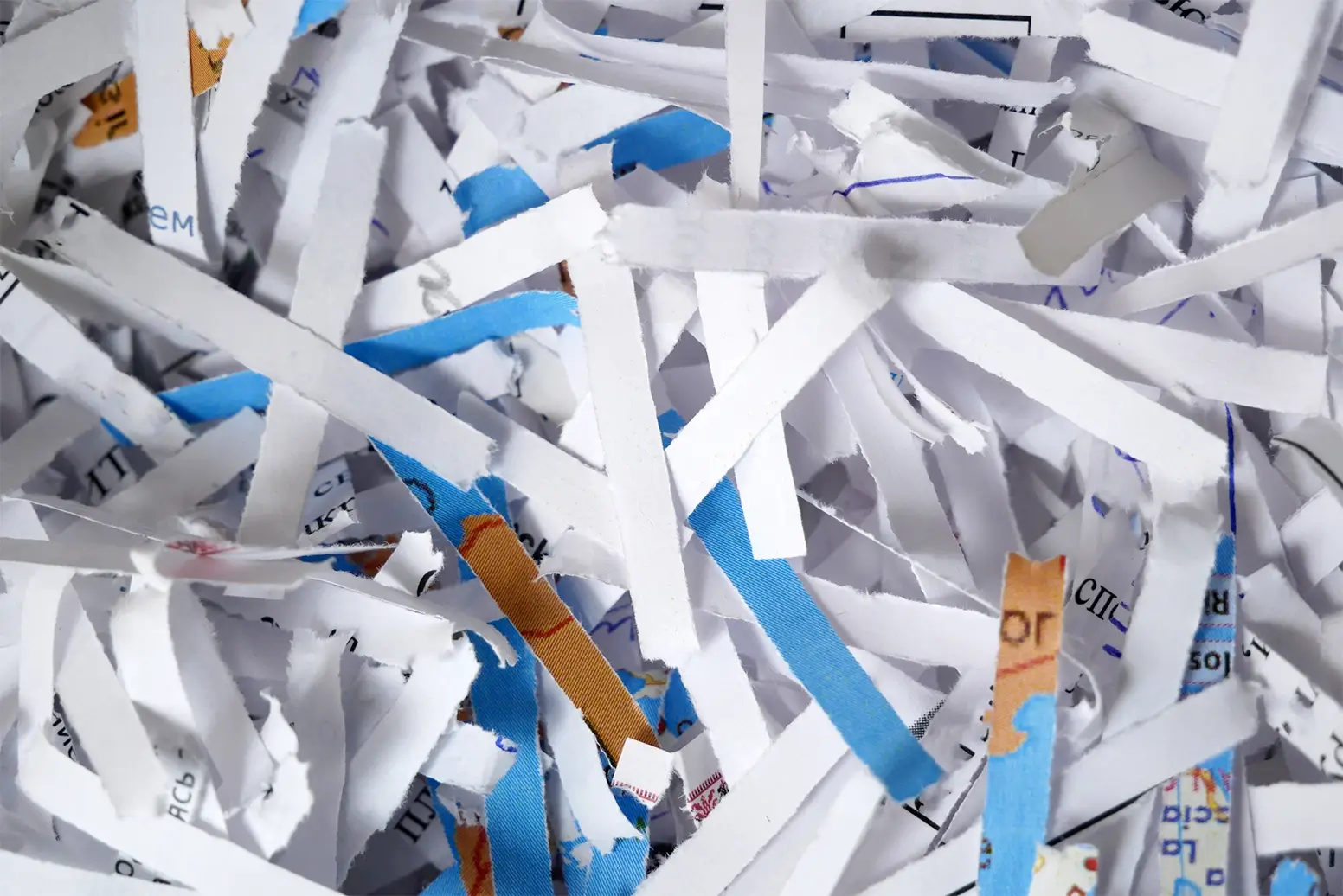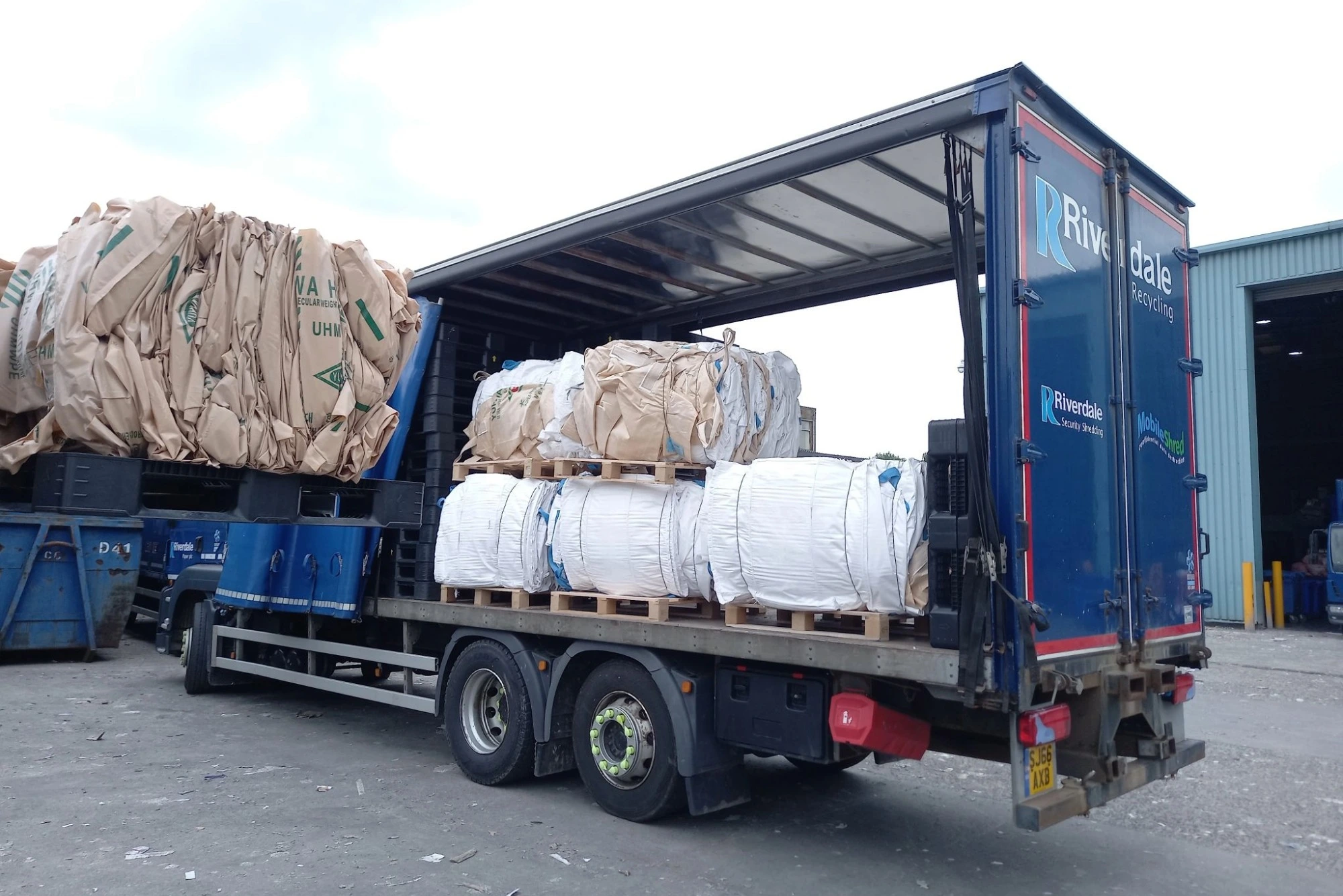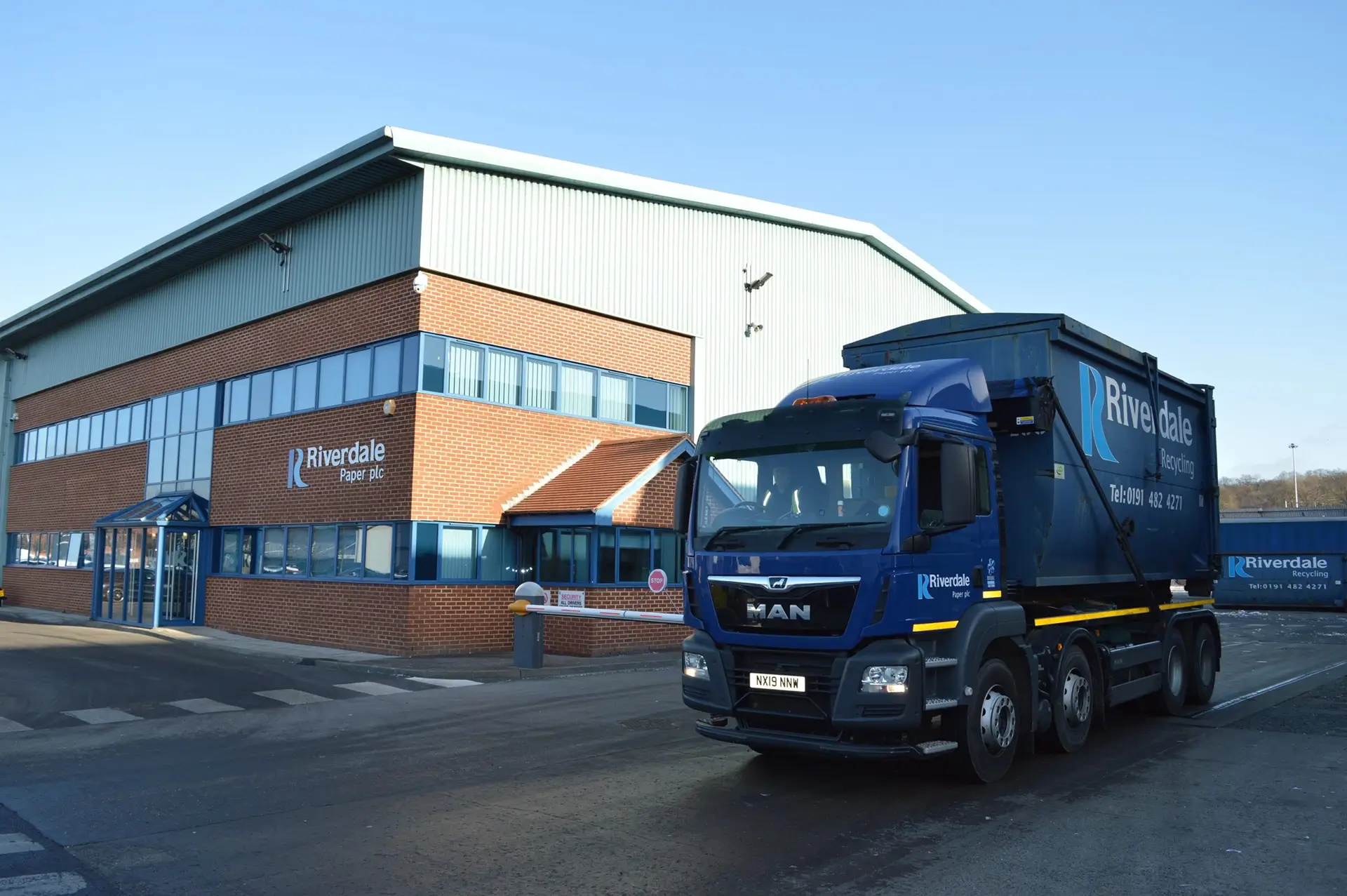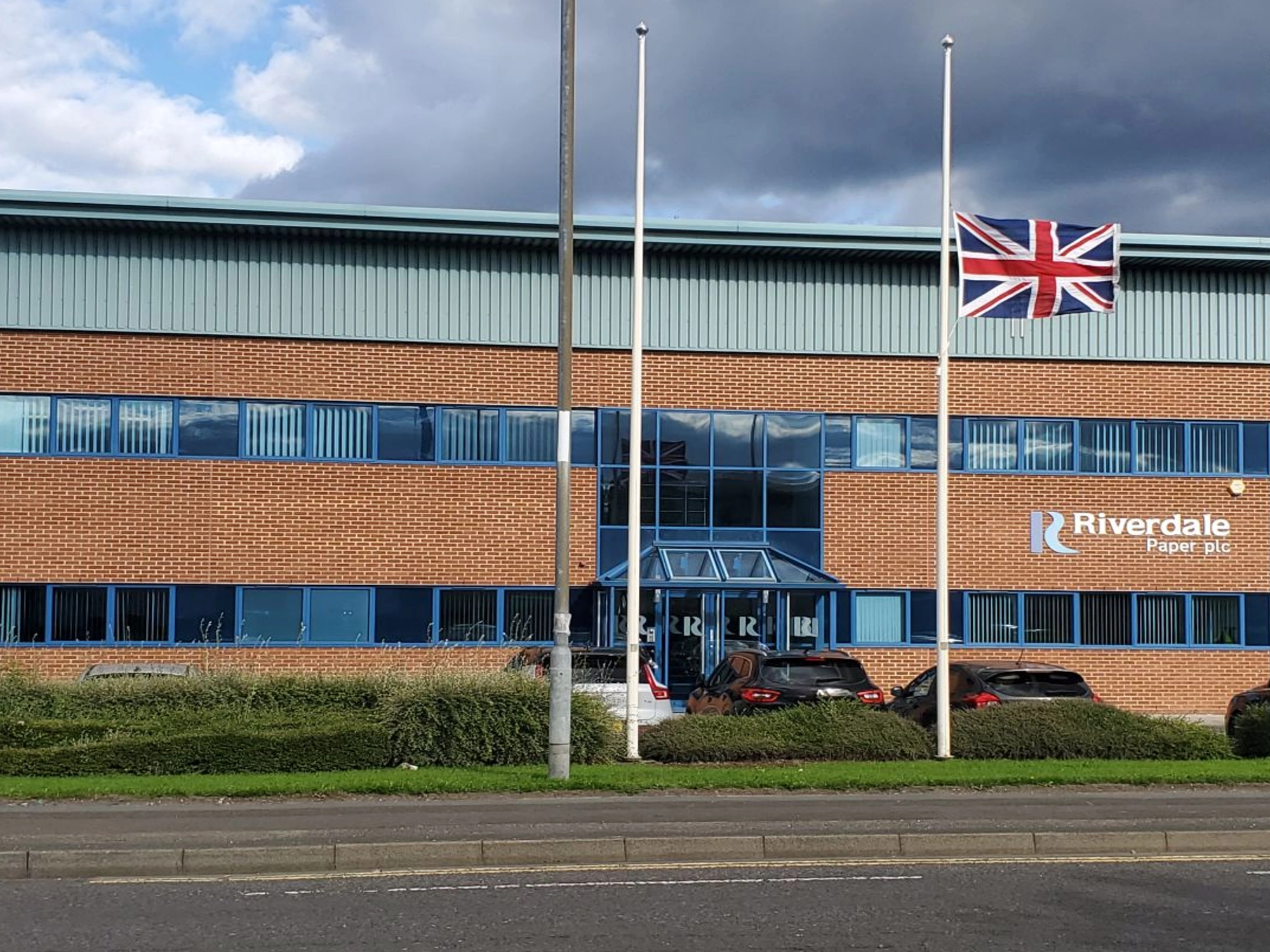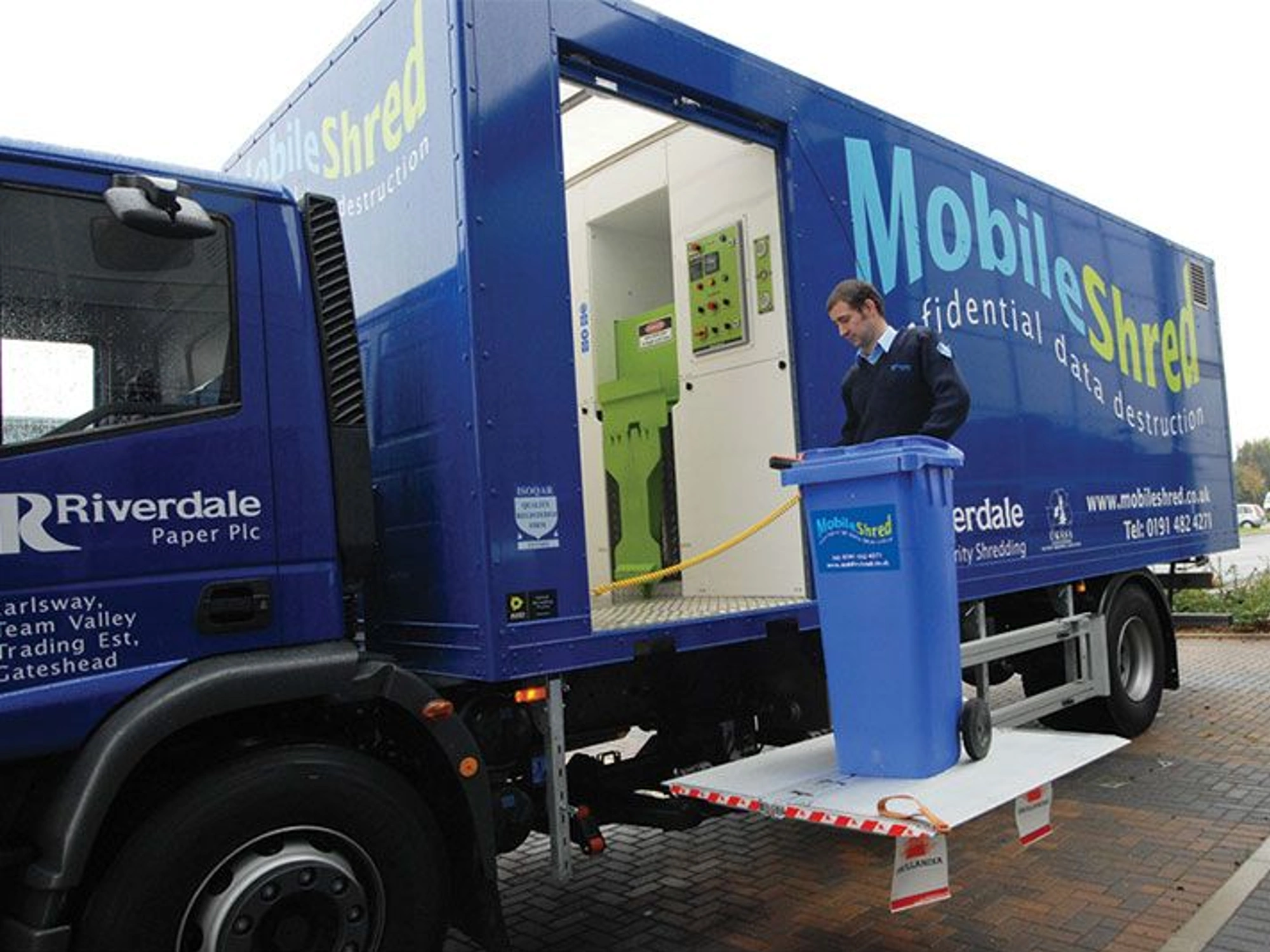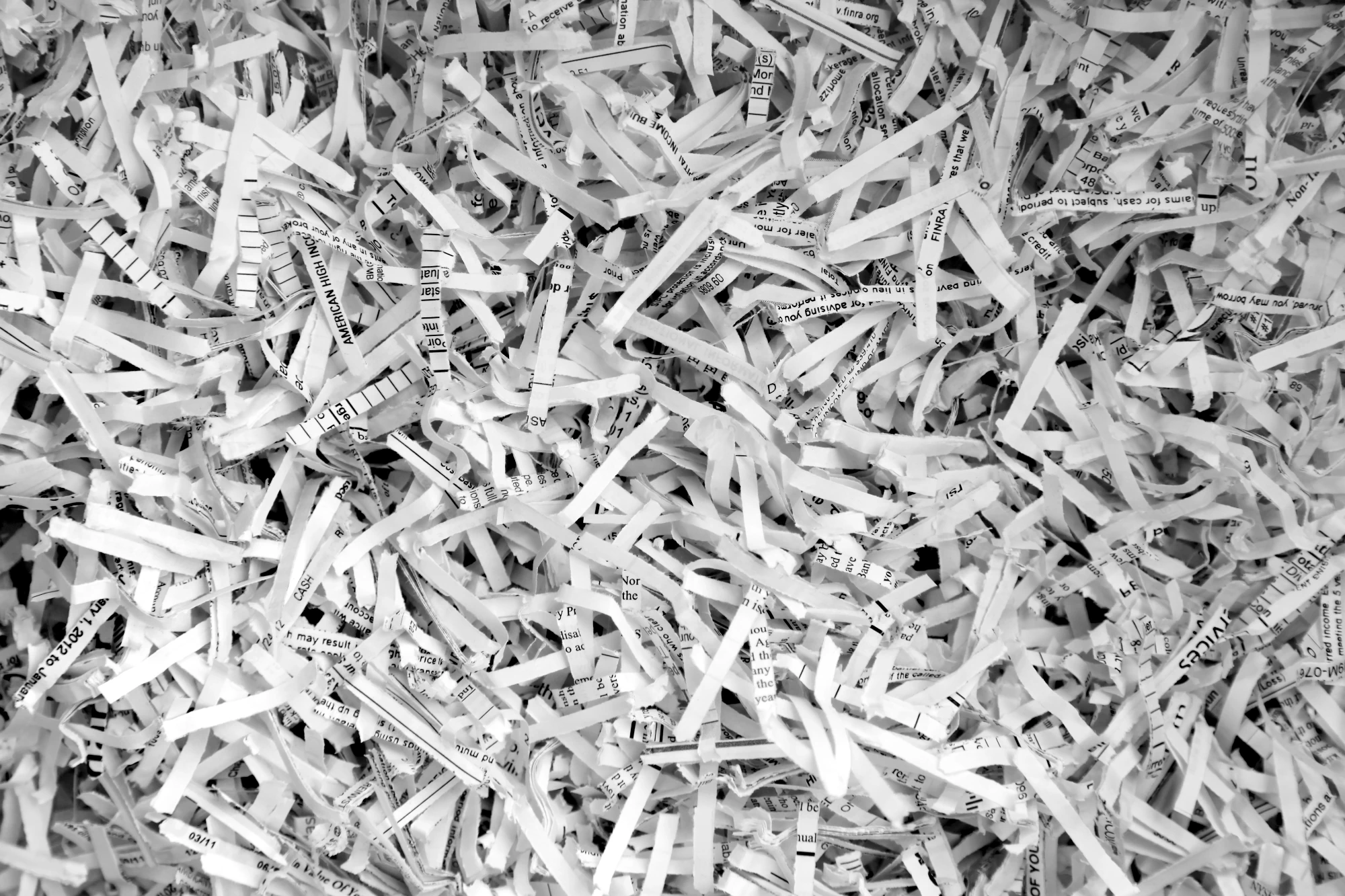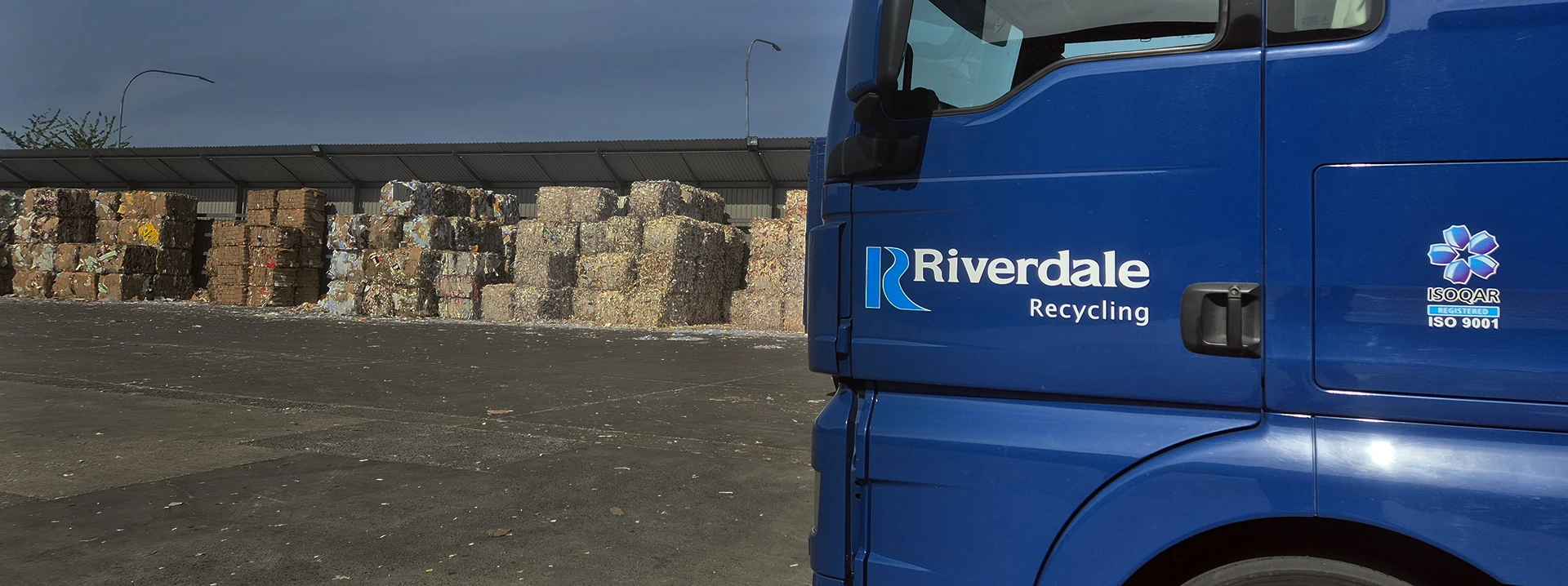Paper
News 24 Jun 2025
What UK businesses need to know about commercial waste disposal
Learn how commercial waste disposal works, why responsible management is essential for UK businesses, and how we can support your operations.
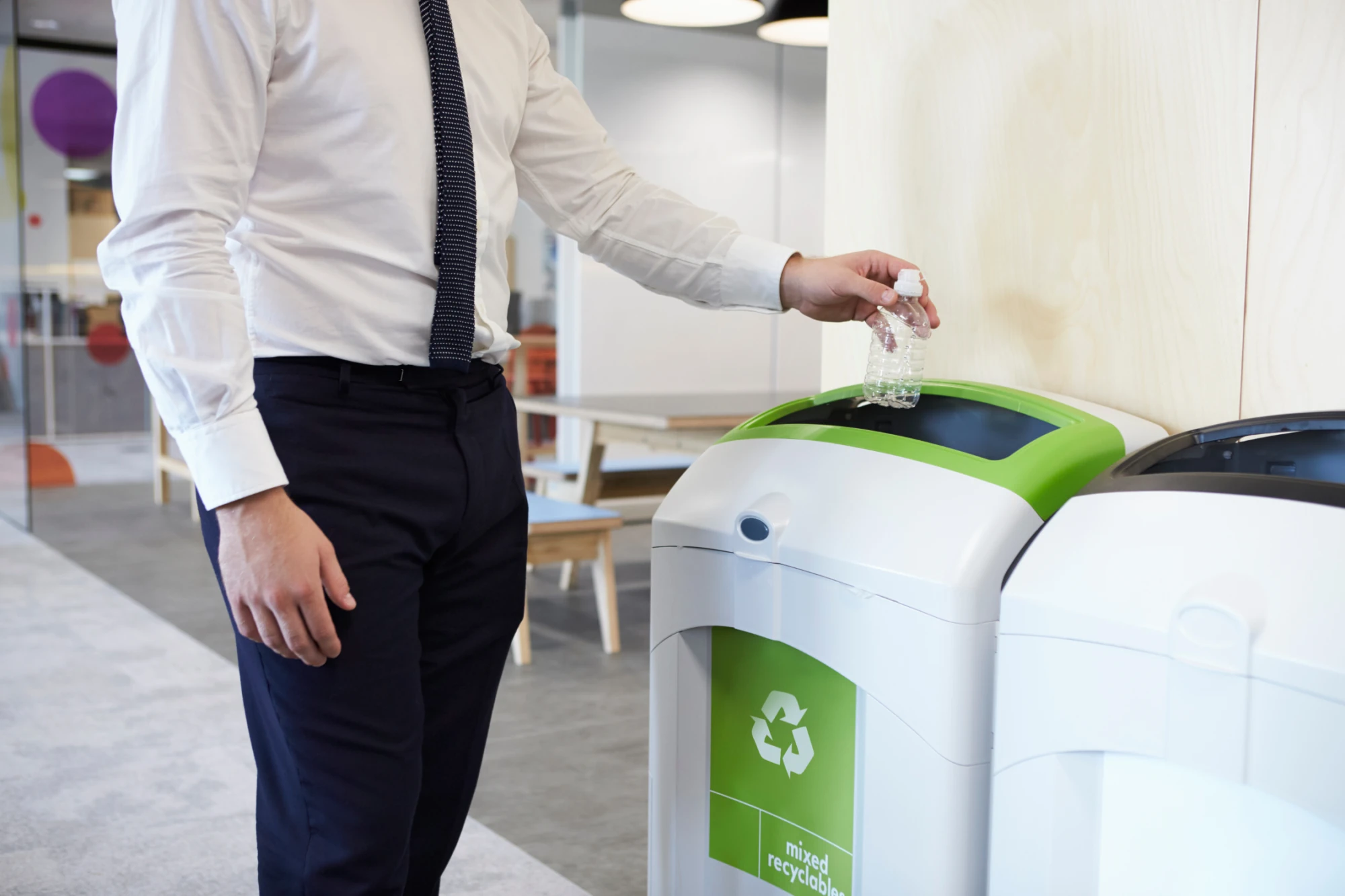
Every UK business has a legal responsibility for commercial waste disposal.
Failing to comply with disposal regulations can lead to serious legal and reputational consequences.
In this blog post, we’ll explore the different types of commercial waste, their disposal requirements, legal obligations for businesses, penalties for noncompliance and the benefits of responsible waste management.
What is commercial waste?
Commercial waste refers to any materials left over from business activities that require disposal, whether produced in a factory setting or an office environment.
Unlike household waste, businesses are required to manage and dispose of commercial waste in a safe and environmentally responsible manner, and failure to do so can result in penalty fines.
Types of commercial waste and how to manage them
Managing commercial waste responsibly means understanding the different types of waste your business produces and how each should be handled.
Here’s a breakdown of common commercial waste types and how to manage them:
General waste
This includes non-recyclable materials such as contaminated food packaging, hygiene products, and broken items that cannot be reused or recycled.
How to handle general waste:
- Segregate at source to avoid contamination of recyclable materials
- Store in clearly labelled general waste bins provided by a licensed carrier
- Ensure regular collection by an authorised waste management provider
- Always keep a waste transfer note for your records
Paper and cardboard
This includes office paper, newspapers, magazines, cardboard boxes, packaging, and shredded paper.
How to handle paper and cardboard:
- Separate clean paper and cardboard from other waste streams
- Use dedicated bins or balers to maximise efficiency
- Avoid contamination with food or liquids
- Arrange for regular recycling collections
Confidential waste
This includes sensitive documents containing personal, financial, or business-critical information that must be securely destroyed.
How to handle confidential waste:
- Store securely in locked consoles or secure bags
- Do not dispose of through general or paper recycling streams
- Use a licensed waste provider for secure shredding and certification
- Maintain a record of destruction certificates for compliance
Food waste
This includes leftover or spoilt food from restaurants, catering services, and office kitchens.
How to handle food waste:
- Use separate food bins to prevent contamination of recyclable waste
- Store in sealed, hygienic containers to minimise odours and pests
- Arrange for regular collections by a licensed food waste carrier
- Divert food waste to anaerobic digestion or composting where possible
Plastic waste
This includes soft and hard plastics, shrink wrap, polystyrene, and mixed packaging.
How to handle plastic waste:
- Segregate clean plastics and packaging at source
- Use dedicated plastic recycling bins or balers
- Flatten or compact to save space
- Ensure correct labelling and storage to avoid cross-contamination
Glass waste
This includes bottles, jars, and other glass containers.
How to handle glass waste:
- Use dedicated glass bins to avoid breakage risks and contamination
- Ensure containers are clearly marked and stored safely
- Do not mix glass with general waste or other recyclables
- Arrange for specialist glass recycling collections
Legal obligations for businesses
We look at the key legal requirements for businesses for storing, managing, and disposing of waste below:
Duty of Care (Environmental Protection Act 1990)
Under the Environmental Protection Act 1990, all businesses have a Duty of Care to manage their waste in a way that protects the environment.
This includes correctly classifying waste and ensuring it is taken to an authorised site, such as a licensed landfill or recycling facility.
By following these guidelines, businesses help to reduce the risk of pollution and environmental damage.
Waste transfer notes & record keeping
Businesses are required by law to fill out a Waste Transfer Note (WTN) for each load of waste they transfer to another party.
This document contains information about the type and quantity of waste being transported. It must be kept on file for at least two years.
It is also critical that the waste is accurately described to ensure proper handling and avoid mismanagement or illegal dumping.
Proper documentation not only helps to maintain compliance but also promotes accountability throughout the waste management chain.
Licensed waste carriers
Businesses are required by law to dispose of waste only through licensed waste carriers and authorised facilities.
They must confirm that their waste carrier is registered with the Environment Agency by checking their information in the public register.
Businesses should request documentation confirming their licence to ensure they are working with a legitimate and reputable provider.
Taking these steps helps to prevent illegal waste activity and protects your business from legal actions.
Following the waste hierarchy
UK regulations also require businesses to use the waste hierarchy when managing waste.
This framework outlines five key steps to help reduce environmental impact.
1. Prevention
The most effective way to manage waste is to avoid creating it in the first place. This includes using resources more efficiently, reducing packaging, and avoiding overordering materials.
2. Reuse
Where waste cannot be avoided, the best option is to reuse items or materials. This could involve repurposing equipment, donating items, or using refillable containers.
3. Recycling
If reuse is not an option, recycling should be the next priority. This reduces the demand for virgin resources and the energy required for production.
4. Recovery
When waste cannot be recycled, recovery methods such as generating energy from waste (e.g. incineration with energy capture) are preferred over disposal.
5. Disposal
The final, and least environmentally friendly, option is disposal, which typically involves sending waste to a landfill or incineration. This should be done as a last resort when none of the other options are possible.
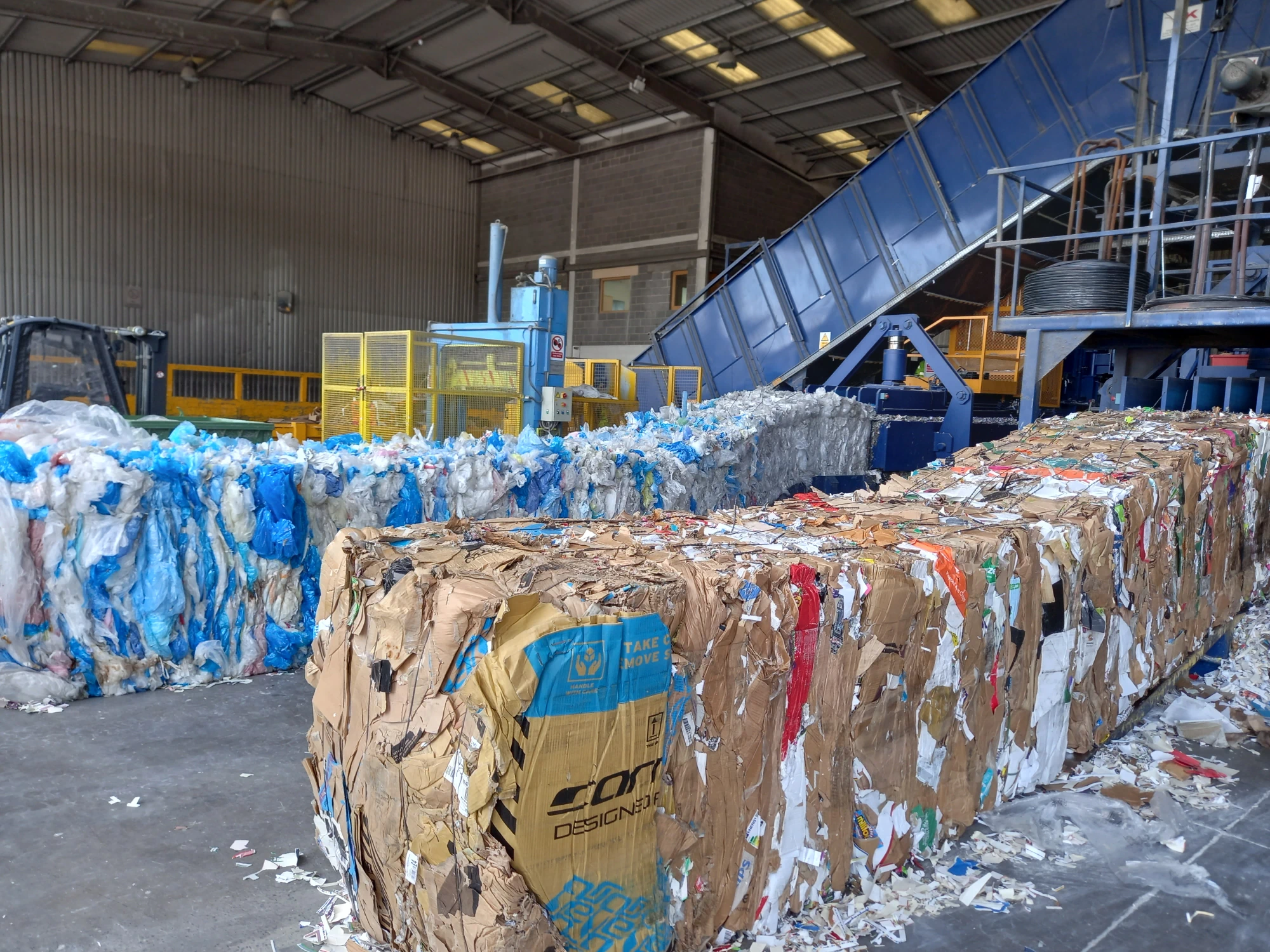
Cardboard and plastic bales
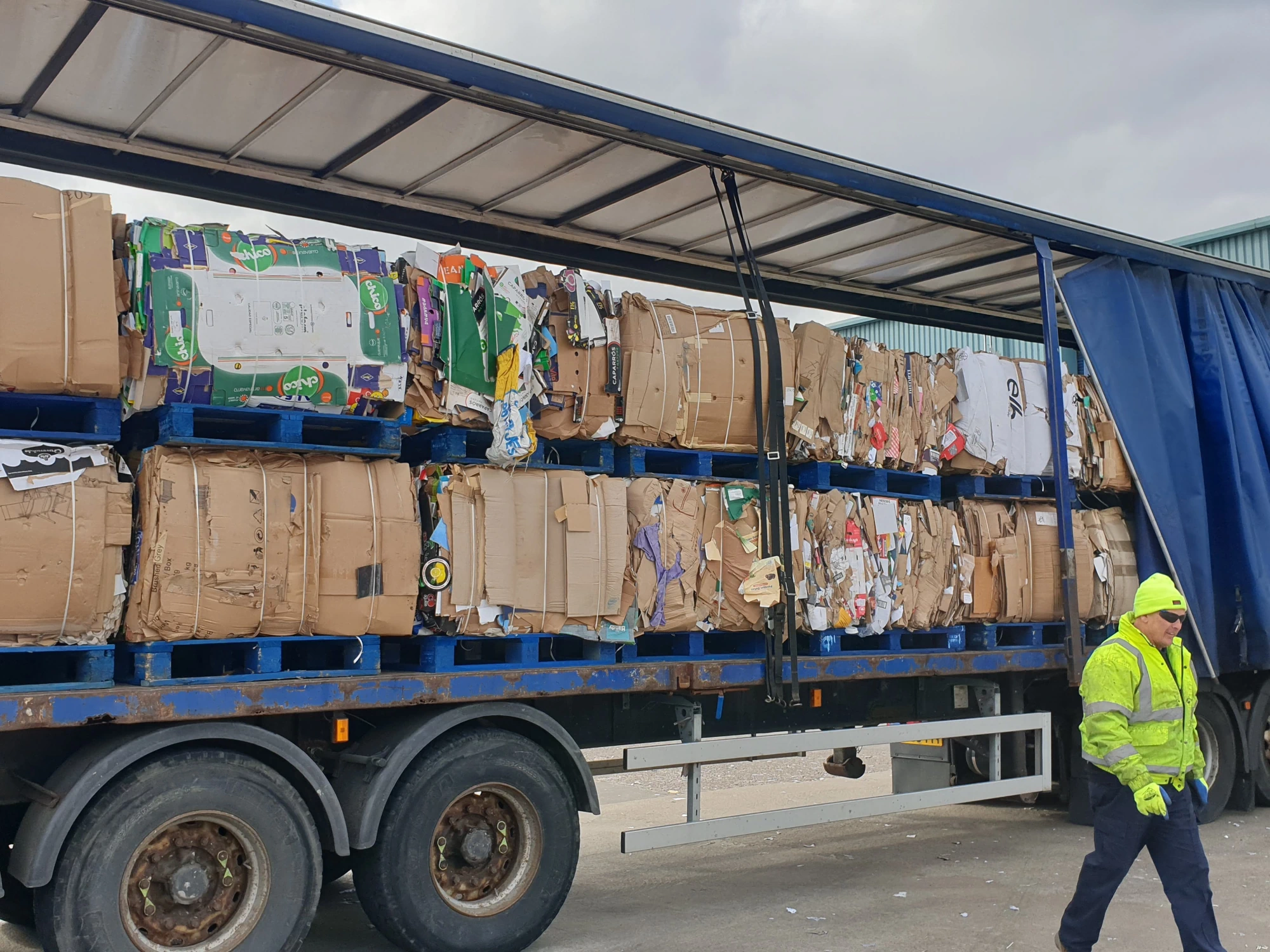
Compressed cardboard bales
Penalties for non-compliance
Failure to meet these obligations can result in:
Fixed penalty notices
While considered less severe than prosecutions, fixed penalty notices can still be costly, typically around £300 per offence.
These fines can add up quickly and are often avoidable with proper record-keeping, up-to-date documentation, and a clear understanding of your legal responsibilities under UK waste regulations.
Large fines
Courts have the authority to impose unlimited fines for more serious offences, such as waste mismanagement, fly-tipping, or knowingly using an unauthorised waste carrier.
The financial consequences can be severe. fines often start in the thousands and can exceed £50,000 depending on the severity of the offence.
For repeat offenders or cases involving environmental harm, penalties may be significantly higher, potentially putting a serious strain on business finances
Prosecution
In severe cases, non-compliance can lead to criminal prosecution.
Both businesses and individuals may face legal action, especially if the breach involves deliberate or repeated misconduct.
This can result in further fines or even custodial sentences of up to five years, depending on the offence.
Reputational damage
As mentioned earlier in this blog post, being associated with poor waste management or environmental damage can severely damage your businesses reputation.
Customers, partners, and stakeholders are increasingly aware of environmental responsibility. Negative associations can lead to loss of trust, reduced business opportunities, and long-term damage to your brand image.
Bad press or public scrutiny, particularly in the age of social media, can spread quickly and be difficult to overcome, affecting both your customer base and future growth.
The benefits of responsible waste management
Responsible commercial waste management is more than just ticking compliance boxes; it is a smart, forward-thinking approach that benefits both the environment and your business. First, we’ll look at the environmental benefits.
Reduced landfill use
Diverting waste from landfills reduces harmful emissions and lowers your environmental footprint.
Landfills produce methane, a potent greenhouse gas, and take up valuable land space.
Reducing our reliance on them benefits ecosystems and promotes a more sustainable waste infrastructure.
Resource conservation
As mentioned earlier in this post, recycling materials like paper, plastics, and metals preserves natural resources and reduces the demand for raw materials.
This, in turn, saves energy, reduces environmental impact from extraction and manufacturing, and encourages the efficient use of finite resources.
Next, we’re going to look at the benefits for businesses.
Cost savings
Responsible waste management can help reduce costs across multiple areas of your operations.
By cutting down on general waste and increasing recycling, businesses often benefit from lower disposal fees.
Efficient waste segregation, smarter use of materials, and avoiding penalties for non-compliance or overfilled bins all contribute to long-term savings. These efficiencies can also improve day-to-day operations and reduce waste-related overheads
Support for sustainability goals
Responsible waste management is critical whether you’re aiming for net-zero emissions, meeting ESG (Environmental, Social, and Governance) benchmarks, or implementing internal green initiatives.
It shows measurable progress towards your environmental goals and a genuine commitment to sustainability.
ISO 14001 accreditation
Effective waste practices also support your journey towards an ISO 14001 Environmental Management certification.
This internationally recognised standard shows that your business is actively reducing its environmental impact.
It can strengthen your market position, improve compliance, and provide a structured framework for continuous improvement, allowing you to stand out in procurement processes and tenders.
How Riverdale Recycling can help
At Riverdale Recycling, we specialise in helping businesses take control of their commercial waste through efficient, compliant, and environmentally responsible solutions.
With over 30 years of experience, we provide bespoke services to businesses throughout the North East and beyond, reducing their landfill reliance, cutting costs, and improving sustainability credentials.
From regular collection and recycling of paper and plastic to secure shredding of confidential documents, we offer end-to-end waste management tailored to your needs.
Whether you’re looking to improve recycling rates, ensure data protection compliance or work towards zero waste goals, our team will create a strategy that works for your business.
We also offer free site audits to help you classify your waste streams, identify recycling opportunities, and stay on top of your legal obligations.
With Riverdale Recycling as your waste management partner, you can expect expert advice, measurable results, and a long-term commitment to keeping your company compliant and environmentally conscious.
Get in touch with a member of our team today to learn more about our services.
More from our blog
Serving UK businesses for over 40 years
We have built a legacy of expert waste management, driving innovation in sustainable recycling solutions.
Operating a Zero Waste to Landfill policy
We strive to eliminate landfill reliance through meticulous sorting, processing and innovative waste-to-energy services.
North East based, delivering nationwide services
We're a North East company with a national footprint, supporting businesses across the UK.
Expert knowledge with a personalised service
We tailor our waste management solutions to meet your unique business needs, offering ongoing support.
